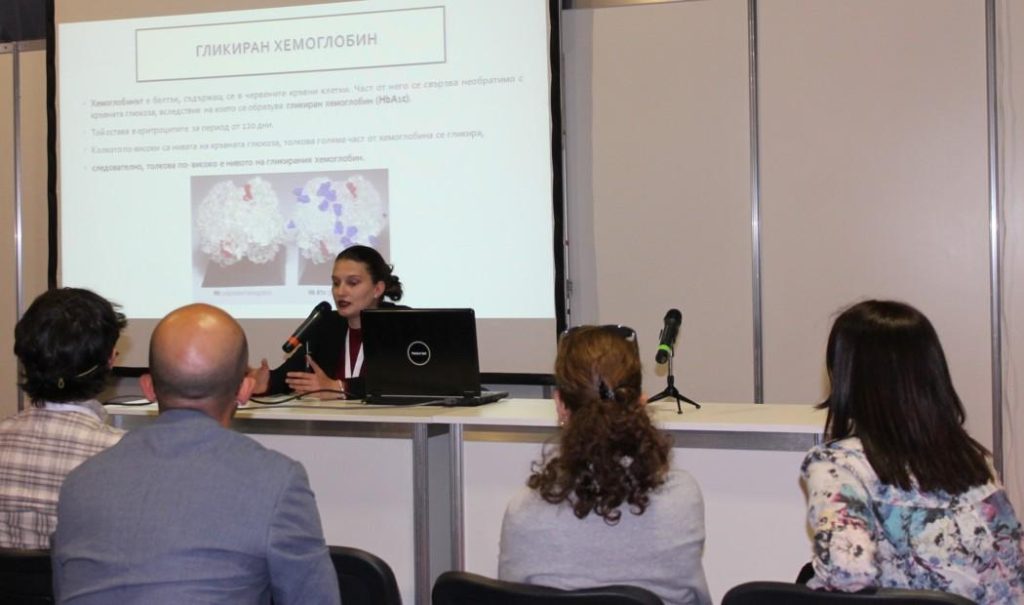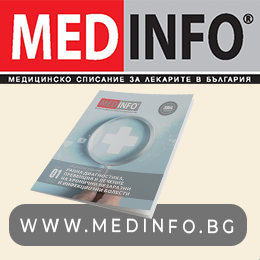One of the most important markers for diagnosing diabetes is glycated hemoglobin. Details on its formation, functions and importance were provided by Tsvetelina Tsakova, Ioana Serafimova and Martina Momchilova. As part of the presenters from the Yordanka Filaretova Medical College, within the framework of the side-events program at Bulmedica / Buldental 2017, they delivered the lecture “Glycated hemoglobin – an important marker in the diagnosis of diabetes”.
“Half of the patients with diabetes had no idea of their condition until it was found in them,” said Tsvetelina Tsakova. According to data by the World Health Organization, more than 371 million people worldwide now suffer from the disease. Estimates reach up to 552,000,000 by 2030. Among the early symptoms of diabetes are chronic fatigue, unexplained weight loss, constant thirst, blurred vision, continuous hunger, and others.
“Maintaining glycated hemoglobin below 7% in older people with Type 2 diabetes is risky,” said Tsvetelina Tsekova, quoting recent results from multicenter studies. In addition, intensive glycemic control leads to an increased incidence of dangerous hypoglycemic episodes.
The lecturer warned that the check for glycated hemoglobin is not advisable in some circumstances when, for example, there is a change in diet or medication within 6 months. The same applies to the diagnosis of gestational diabetes in pregnant women.





